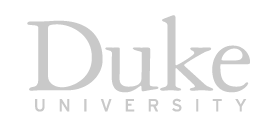PI William Pan, Nicholas School of the Environment/Duke Global Health Institute
Charles Muiruri, School of Medicine – Population Health
Shineng Hu, Nicholas School of the Environment
Wenhong Li, Nicholas School of the Environment
Peter Harrell, Nicholas School of the Environment
Alexander Pfaff, Sanford School of Public Policy
Mark Janko, School of Medicine/Duke Global Health Institute
John Fay, Nicholas School of the Environment
Megan Reller, School of Medicine
Over the past decade, a Duke team supported by NASA developed and validated a malaria early warning system in the Peruvian Amazon. The system is based on three data streams: near real-time monitoring on hydrometeorology and land cover from a land data assimilation system (LDAS); weekly malaria surveillance in government health posts; and ancillary data that includes population at risk, recent interventions, and land concessions. While we have demonstrated high sensitivity and specificity in detecting outbreaks 8-12 weeks in advance as well as highly accurate “nowcasts” for small spatial areas; we have had challenges regarding: implementation and adoption; validation testing in countries on path towards malaria elimination; and leveraging the sophisticated climate models and teleconnections that improve terrestrial forecasts of climate characteristics. In addition, our regional partners in Latin America have indicated the need for improved visualization platforms of risks that are linked with climate/land cover data, validation of our general methodological approach for other diseases, and education/outreach to improve knowledge, interpretation, and decision-making of environmentally-driven health risks. This Duke Climate-Health Research team has the overall goal of improving disease early warning system estimates in multiple contexts, developing advanced visualization platforms in collaboration with our community partners, and designing an implementation science framework that includes capacity building to ensure scalability of our approach across Latin America and the Caribbean.


